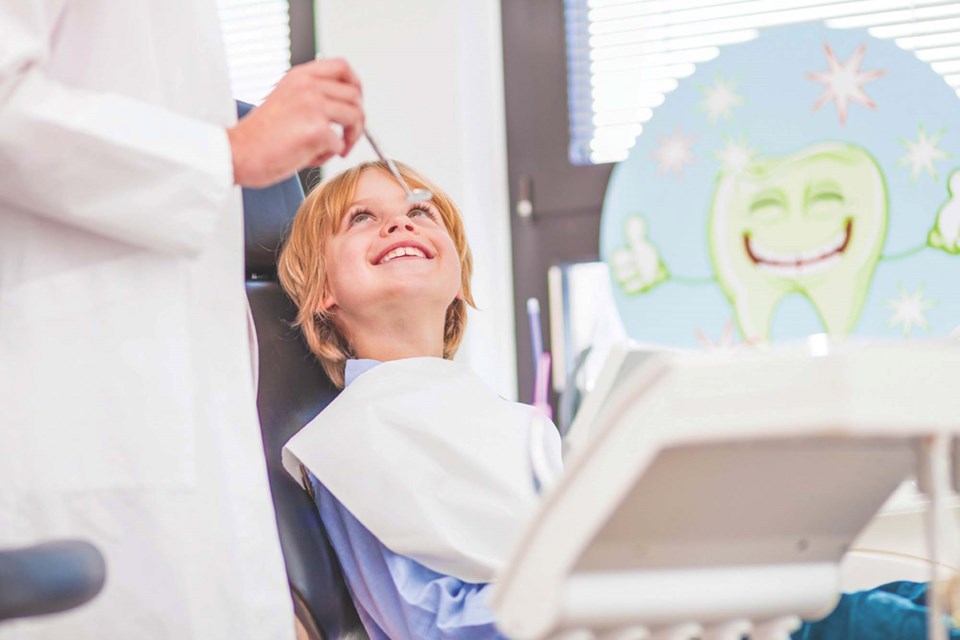On Sept. 20, the federal government tabled two pieces of legislation that, if passed, will create a temporary annual benefit intended to increase access to dental care for eligible children under 12, and double two upcoming GST credit payments.
"Doubling the GST credit would provide $2.5 billion in additional targeted support to the roughly 11 million individuals and families who already receive the tax credit," the government stated in a Sept. 20 news release.
"Single Canadians without children would receive up to an extra $234 and couples with two children would receive up to an extra $467 this year," the release said. "Seniors would receive an extra $225, on average."
The temporary dental benefit, which would provide up to $650 a year for the next two years, applies to children 12 and younger who are not covered for dental under a parent's or guardian's insurance plan. Additionally, an eligible parent or guardian must have an adjusted annual income of less than $90,000.
To obtain the benefit, according to the drafted bill, those eligible would need to apply through the Canadian Revenue Agency with proof of income; the name and address of the dentist or dental care provider the applicant intends to take the child to; and the name and contact information of the applicant's employer.
The benefit amount will vary depending on income level, the draft bill states. To receive the maximum amount of $650 a year, a person's annual income must be below $70,000.
The draft bill can be read on the House of Commons website.
In the Sept. 20 release, the federal government stated that the dental benefit is temporary while they develop a "comprehensive national dental care program."
Increasingly needed
St. Albert dentist Dr. Frank Neves said he has noticed a rise in the number of patients without insurance seeking dental care at his clinic, Bright Dental.
Citing pandemic-related job losses and therefore loss of dental coverage, Neves estimated that for every 10 patients his clinic sees, three are paying for services out of pocket.
"So, that is difficult from the standpoint of they still have ends to meet but all of a sudden this added bill of a cleaning could be anywhere, with X-rays and an exam … it’s probably [between $400 and $500]," Neves said. "It’s very difficult to access if you’re a single mom or a single dad, or even a dual-income family.”
Bright Dental also offers a payment plan for dental care, which Neves said about 50 per cent of the clinic's patients use.
“We notice it’s on the rise — people being in more need of help at a dental clinic from a financial standpoint," Neves said.
Although he supports the federal government's plan for the temporary dental benefit program, Neves said he does have some underlying concerns.
“I completely appreciate and support the directive of the government to try and start something like this. I do, though, believe they’re being shortsighted from the education [standpoint]," he said. “I’d like to see the government come out and try to make ads as far as why it’s important to get your teeth cleaned.
"If you don’t even care about getting your teeth cleaned — you just want to go to the dentist when there’s something hurting — the program’s not going to help; it’s a waste of money,” he said.
When it comes to a national dental care plan, Neves hopes Ottawa is realistic about the costs involved.
"I think if you’re going to implement a national plan, you obviously can’t go after people that already have big, big problems going on with their mouth," Neves said, adding that a single root canal can cost upwards of $1,000.
“I do think if [the federal government] turned around and said, ‘Listen, we’re going to give everybody enough money that they could get their hygiene done, get their X-rays done, and make sure there isn’t anything brewing, and we’ll cover a couple of fillings a year,’ I think that’s reasonable," said Neves.
“If you did that for about $1,200 or $1,500 per year, that will cover two cleanings, that will cover maybe a filling or two in case you missed an area, but I don’t think it should involve anything comprehensive because at that point the patient has been negligent.
“There has to be a degree of accountability on the government’s part, but also certainly on the patient’s part."
The Gazette contacted 14 other dental clinics in St. Albert, and all interview requests were either declined, or the clinic's dentists were unavailable.
Both bills are still being debated during the second reading stage in the House of Commons.



